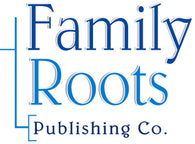
The Albemarle Parish Vestry Book, 1742-1786, Surry And Sussex Counties, Virginia
The Albemarle Parish Vestry Book, 1742-1786, Surry and Sussex Counties, Virginia by Virginia Lee Hutcheson Davis, and Andrew Wilburn Hogwood; Published: 2005; Reprinted: 2008; xii + 266 pp; Paperback; ISBN: 9780806317564; Item # CF9875.
Albemarle Parish is a lineal descendant of James City Parish, the first Anglican parish to be established in the New World. At its inception, James City County laid astride the north and south sides of the James River. In 1652 Surry County was formed from that part of James City County lying south of the James River. The new county included two parishes that had been created earlier out of James City County: Lawne's Creek Parish (1640) and Southwark Parish (1647). In 1738 these two parishes were divided, with parts of both parishes north of the Blackwater River united into one parish and retaining the name Southwark. The parts on the south side of the Blackwater River became another distinct parish, named Albemarle. With the changes in boundaries, Lawne's Creek Parish then became extinct. Sussex County was created from Surry County in 1754, with Surry County remaining in Southwark Parish and Albemarle Parish encompassing the new county. A change in boundary lines configured Albemarle Parish to fit entirely into Sussex County.
The Vestry Book of Albemarle Parish is one of the priceless original public records of the Old Dominion that has survived the vicissitudes of time, wars, invasions, fire, and neglect. Now, for the first time, the Vestry Book is widely available to researchers owing to the transcription efforts of Virginia Lee Hutcheson Davis and Andrew Wilburn Hogwood.
The original Albemarle Parish Vestry Book begins on November 16, 1742 (with some earlier pages missing), some four years after the parish's formation, and runs to 1786. The manuscript includes the proceedings of the vestry, as well as many records of the processioners' returns. Spellings of proper names, both given and surnames, vary widely, some spelled phonetically, some as abbreviations, and some are indecipherable. The authors have indexed the names according to the variant spellings to draw no inferences that may be erroneous as to the identity of that person. It is advised that the researcher refer to the photostatic or microfilm copy for verification. Spelling of geographic locations varies widely also, as does the handwriting. To verify place names, one should check a modern topographic map for the closest approximation.
Like most vestry books, Albemarle Parish recounts parish business, such as payment and exemptions of levies, appointment of collectors, processions of land, construction of churches, and so on. While it does not contain many references to blood relationships, it has the virtue of placing individuals in Albemarle Parish in the 18th century. Given the scarcity of Sussex County records for the period under investigation, researchers should welcome the opportunity to investigate the 6,500 Surry/Sussex county inhabitants identified in this meticulously transcribed and indexed work.
